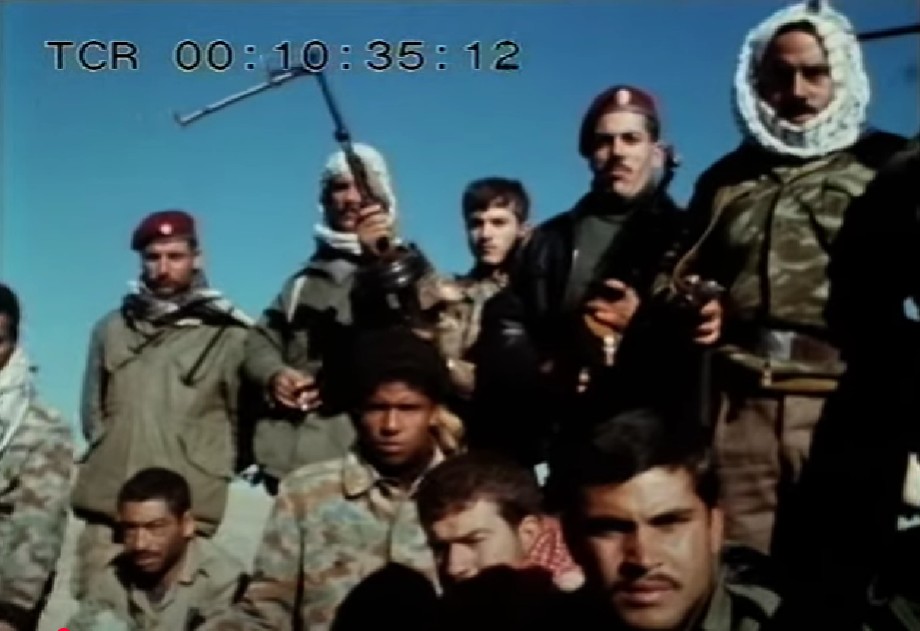Could Lebanon’s President Aoun’s push to disarm Palestinian militias and Iran-backed Hezbollah in the country spark another civil war? There are rumblings.
Meanwhile, President Aoun is likely a marked man. The assassination of Lebanese leaders is not out of the ordinary. Refer to the assassination of former Lebanese Prime Minister Rafic Hariri, likely carried out by Hezbollah.
From the FDD report: FDD, Flash Brief — Lebanese Government Claims Disarmament of Armed Palestinian Groups Underway:
• LAF Begins Process of Consolidating Arms: The Lebanese government claimed on August 21 that it had begun disarming Palestinian factions in the Burj al-Barajneh refugee camp in Beirut, as part of a broader effort to ensure the state’s monopoly on the use of force. Lebanese President Joseph Aoun and Palestinian Authority President Mahmoud Abbas agreed to the measure when they met on May 21. U.S. Ambassador to Turkey and Special Envoy to Syria Tom Barrack hailed the development as “a great accomplishment” and “a historic step toward unity and stability.” Palestinian spokespersons played down the news, with a Fatah official telling Reuters that the only weapons taken so far were those that had entered the camp illegally one day prior.
• Terrorists Reject Disarmament: Hamas and Palestinian Islamic Jihad, calling themselves “the Palestinian Factions in Lebanon,” emphasized that the disarmament was a local matter, and “has no connection to reality.” “Our weapons have always been and will always be linked to the right of return and the just Palestinian cause and will remain so as long as the occupation remains on Palestinian soil,” they stated. Earlier this month, the Lebanese government approved a plan to disarm all militant groups in the country in order to enable the Lebanese Armed Forces (LAF) to exercise a monopoly on force, as mandated by UN Security Council Resolution 1701. The Lebanese Shiite terrorist group Hezbollah, which is backed by Iran, has vowed to keep its arms, threatening that Lebanon could be plunged into a civil war if the government forces the group to relinquish its arsenal.
(To read more, see: https://www.fdd.org/analysis/2025/08/21/lebanese-government-claims-disarmament-of-armed-palestinian-groups-underway/ )
Something that the Jordanian King, Egypt’s President, the Kuwaitis, Saudi Arabia and other Arab leadership, are accutely aware of is that Palestinian armed factions sparked the Lebanon Civil War (1975 to 1990), and that the Palestine Liberation Organization (PLO) and its Palestinian faction allies, tried to overthrow Jordan King’s Hussein in an offensive called ‘Black September’ (1970-1971), and futhermore, that the PLO backed Iraq after Kuwait was invaded.
After Iraq’s invasion of Kuwait under Saddam Hussein in 1990, the PLO’s chief, Yasser Arafat, foolishly sided with Iraq against Kuwait. Meanwhile, Kuwait had been a big supporter of the PLO and Palestinians. The country had given mountains of financial help to the organization, as well as giving residency to Palestinians, including PLO members– there’s gratitude for you. The invasion dragged in the world, it led to the authorized United Nations (UN) action against Iraq for the liberation of Kuwait, now known as the First Gulf War or The Gulf War.
Historical facts easily forgotten: The First Gulf War saw Saudi Arabian armed forces alongside US troops, fighting off the Iraqi army, re Battle of Khafji (29 January to 1 February 1991).
After the First Gulf War saw the liberation of Kuwait, the PLO was cut off by a number of Arab states for aligning with Saddam Hussein against Kuwait. Supporting Iraq de facto meant the PLO was against Saudi Arabia and all the aligned Arab states, as part of a coalition to liberate Kuwait. Here is an interesting perspective to keep in mind: the PLO opposed the UN and its support to free Kuwait.
And after the PLO had its lines of Arab support removed, coincidentally, we saw Arafat and Israel talking peace, which led to the Oslo Accords peace agreements. The Oslo Accords established self-governance in the West Bank and Gaza for the Palestinian Authority (i.e. the PLO) — that is, until the PA (and Fatah) lost complete control of Gaza to the terrorist Hamas party after the Battle of Gaza (10 to 15 June, 2007).
Going back to Black September in Jordan, when the conflict ended, and countless Palestinians died, the PLO and other factions were forced out of the country, with many setting up shop in Lebanon, adding to the already present Palestinian armed factions problem in Lebanon.
Please take a look below at the 1969 Thames news report from Lebanon. It offers some fascinating information, perspectives, insights into the Lebanese culture, religious issues, politics, extreme left vs extreme right politics, ethnic divides, the Palestinian armed factions, military tensions, etc. In the report, there is some great footage of combat, events, interviews, and of Lebanon as it once was. From this report we can see the factors that led to the Lebanese Civil War, including Palestinian instigations.
The mainstream view at the time was the Lebanese conflict was based on left vs right ideologies, despite the religious and ethnic divide being, in good part, the underlying driving forces for the war. The PLO at the time was considered a secular leftist movement, and still today is seen by many in these terms, despite the Islamic religious undertones that pop up; it’s cultural, there is no escaping it.
–RdM
Thames Television (archives 1969) — Lebanon | Civil War | Middle East | Road to war | This week | 1969:
Thames Television award winning factual strand ‘This week’ travelled to ‘The Lebanon’ once known as the Monte Carlo of the East – the ‘This week’ team speak to some of the key figures in the country and some of the protagonists behind the devastating civil war that lasted almost a decade. First transmitted on the ITV network 13/11/1969:

Comment